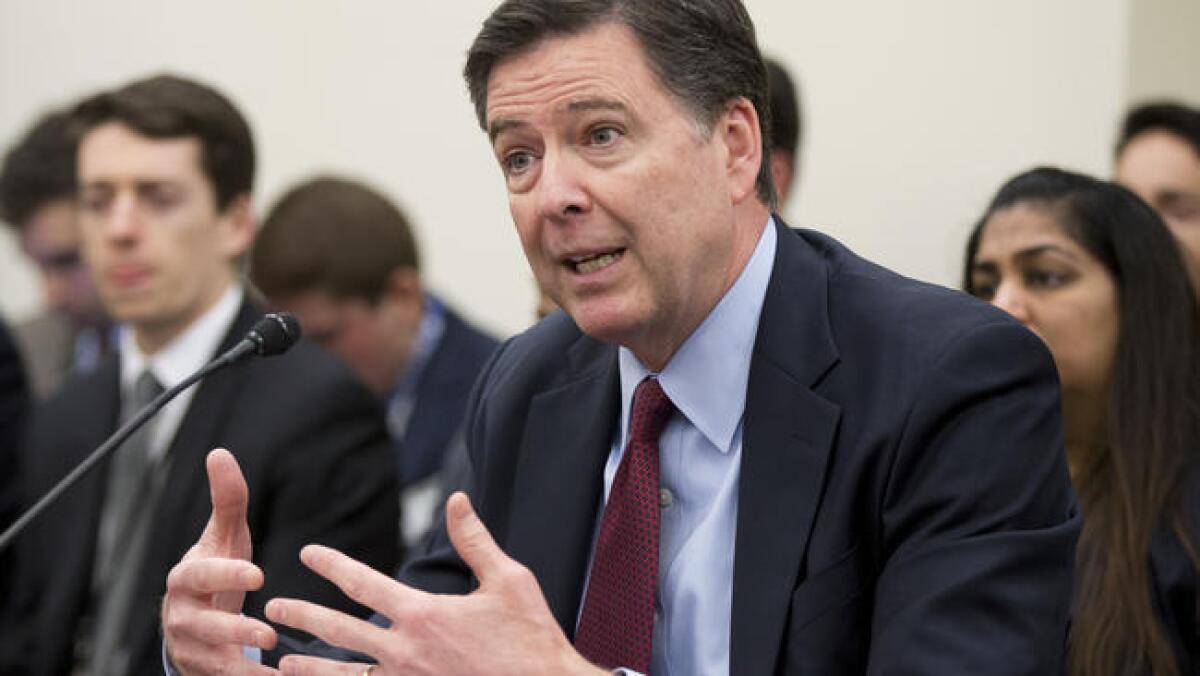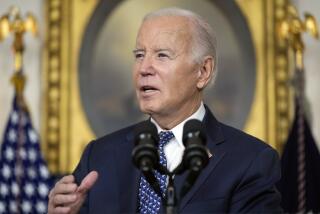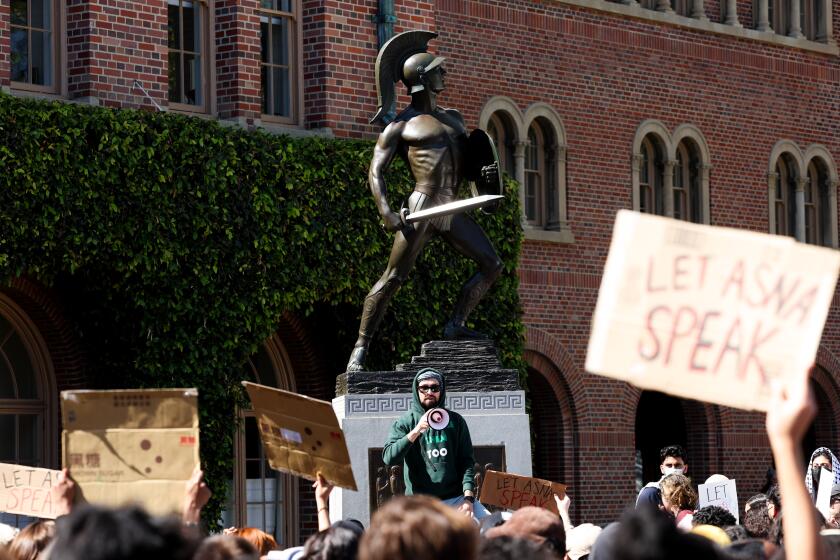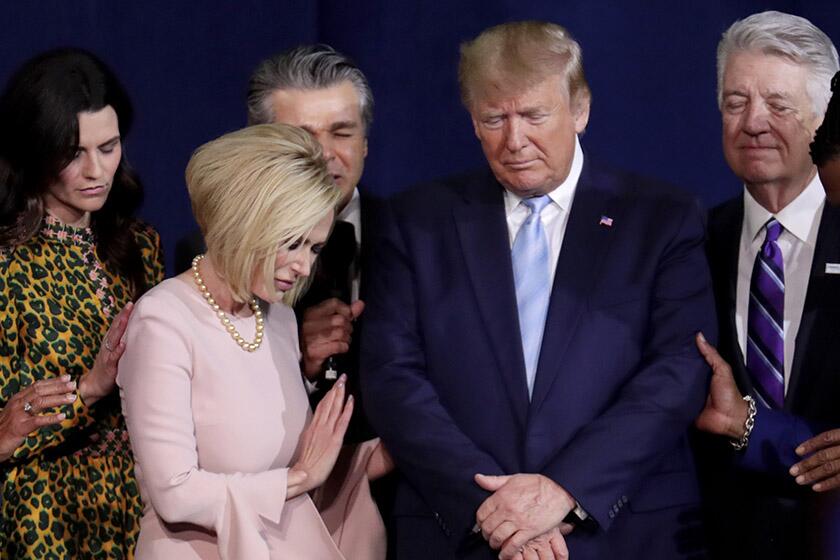Opinion: Comey makes his case, and scores some points

FBI Director James B. Comey on Wednesday had to respond to a one-two punch in connection with his role in the 2016 presidential election. He gave as good as he got.
On Tuesday, Hillary Clinton said at a Women for Women International event in New York that “if the election had been on Oct. 27, I would be your president.” Oct. 28 was the day Comey sent a letter to Congress, which quickly became public, saying that the FBI had “learned of the existence of emails that appear to be pertinent to the investigation” into Clinton’s now-famous private email server.
True, on Nov. 6, two days before the election, Comey essentially said, “Never mind,” saying that an examination of emails found on a laptop owned by former Rep. Anthony Weiner hadn’t changed the FBI’s earlier conclusion that there was no reason to charge Clinton. But Clinton obviously thinks the damage had been done.
On Wednesday, Democratic members of the Senate Judiciary Committee sounded the same theme. They also pressed Comey on why he went public with the FBI’s investigation of Clinton’s private email server but wasn’t similarly vocal about the investigation into possible Russian interference with the election on behalf of Donald Trump.
In reference to the Oct. 28 letter, Comey said that ”when the Anthony Weiner thing landed on me,” he had a choice between speaking up or engaging in “catastrophic concealment.”
To understand why, you have to go back to last summer, when, after declining to recommend charges against Clinton, he committed himself to keeping Congress informed about developments.
And, as Comey made clear Wednesday, he originally took the lead in resolving and explaining the Clinton investigation because the official who should have played that role — Atty. Gen. Loretta Lynch — had been compromised, especially by a meeting in June with former President Clinton.
“A number of things had gone on which I can’t talk about yet, that made me worry that the department leadership could not credibly complete the investigation and decline prosecution without grievous damage to the American people’s confidence in the justice system,” Comey told the committee.
“And then the capper was — and I’m not picking on the attorney general, Loretta Lynch, who I like very much — but her meeting with President Clinton on that airplane was the capper for me, and I then said, you know what, the department cannot, by itself, credibly end this.”
Democrats such as Rep. Adam B. Schiff of Burbank don’t buy Comey’s explanation for the divergent ways he approached commenting on the Russia and Clinton email investigations.
But I think Comey was in a devilishly difficult position in the Clinton case, one forced upon him by the poor judgment of his superiors in the Justice Department.
It wasn’t just Lynch’s injudicious meeting with Bill Clinton. The attorney general failed to formally recuse herself from making the final decision about whether to prosecute Hillary Clinton, saying simply that she would accept the “determinations and findings” of the FBI and career prosecutors who investigated the email server case.
(Another wrinkle in this story is a report in the New York Times last month that the FBI obtained a document written by a Democratic operative, and hacked by the Russians, that “expressed confidence that Ms. Lynch would keep the Clinton investigation from going too far.” The story suggested that the existence of that document also affected Comey’s decision about taking the lead role in speaking publicly about the email investigation.)
Having gone public when he was exonerating Clinton, Comey felt obliged later to let Congress know that there might be new evidence in the case. Thus the choice he described to the Judiciary Committee between updating Congress or engaging in “concealment.”
It’s easy to criticize Comey, not only for the Oct. 28 letter but for his criticism of Clinton for her “extremely careless” handling of classified information — though once he decided to elaborate on the decision not to recommend charges it’s hard to see how he could have failed to characterize her handling of classified information in some way.
Finally, it’s easy to understand why Democrats see a double standard in the relative lack of publicity about the FBI’s investigation of Russian meddling in the election. (Whether the voters would have punished Trump if the latter inquiry were public knowledge is doubtful, however. Clinton didn’t get very far in trying to portray Trump as Vladimir Putin’s puppet.)
Comey has made mistakes, and I can understand that some find him annoyingly self-righteous. But he was more sinned against — including by his nominal superior — than sinning.
Follow the Opinion section on Twitter @latimesopinion and Facebook
More to Read
A cure for the common opinion
Get thought-provoking perspectives with our weekly newsletter.
You may occasionally receive promotional content from the Los Angeles Times.







